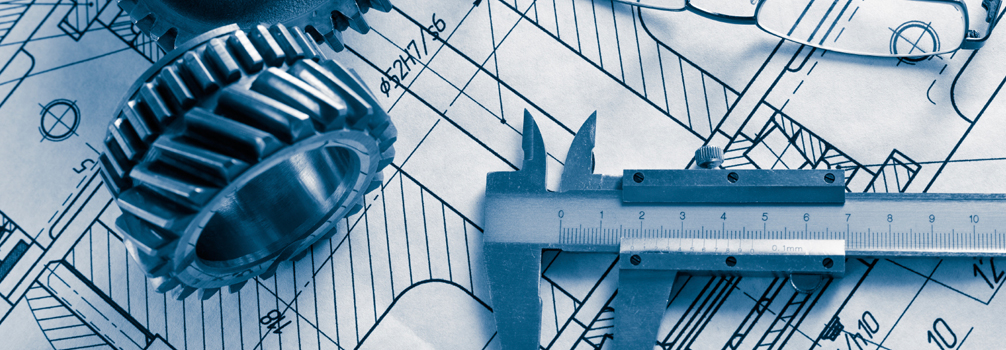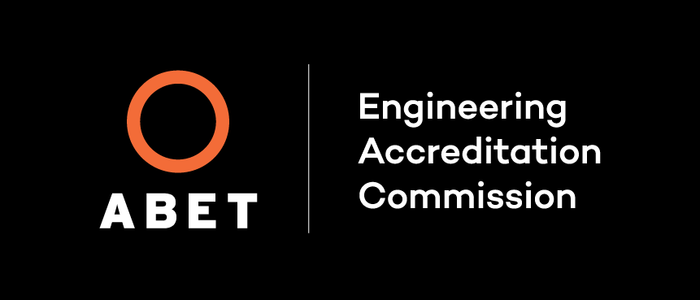The goal of the Mechanical Engineering program is to provide students with the necessary training and education for them to become technical leaders for various industrial, commercial, consulting, and governmental organizations. Mechanical engineers apply the principles of force, motion, energy, and thermal fluids to design tools and processes needed for the human, material, and economic benefit of society. As such, the program is firmly based on the understanding and application of scientific and engineering principles. Technical communication in oral and written form is also emphasized.
Graduates are expected to demonstrate understanding of their social, cultural, and ethical responsibilities to a global society. Graduates learn and then demonstrate proper use of engineering materials and methods that are safe, environmentally considerate, aesthetically pleasing, and fiscally responsible. Potential work-related duties include development and construction of machines and mechanisms; development, instrumentation, and control of manufacturing processes and procedures; design of mechanical systems for heating and cooling; development of energy management procedures; and renewable energy alternatives.
Career Opportunities
Mechanical engineering is one of the oldest and broadest of the engineering disciplines. Mechanical engineers research and create designs, develop tools and processes, and conduct tests for engines, machines, and other mechanical devices from Mega-scale to nano-scale. Engineers in this discipline apply the principles of the thermal and fluid sciences to power systems that include electric generators, internal combustion engines, and steam and gas turbines. They also apply those principles to heating, ventilating, air-conditioning, and refrigeration systems. Mechanical engineers apply engineering mechanics principles to machine design, vibration, and strength of materials. Engineers in this field combine mechanics and scientific principles to biomedical product and diagnostic procedure development. Mechanical engineers apply automatic control and instrumentation technologies to robotic, material handling, and computer-numerical control systems. They provide engineering leadership to product and process design and manufacturing of various consumer and industrial items tools that other engineers need for their work. Mechanical engineers are becoming more involved in the incorporation of environmentally considerate principles and practices including green design, alternative energy development, and pollution prevention. Approximately 20 percent of Mechanical Engineering graduates work in non-engineering jobs such as management, administration, marketing, and sales.
Job Titles
Most graduates of baccalaureate Mechanical Engineering programs work for industrial businesses and corporations. Others secure positions with educational, governmental and nonprofit organizations and agencies. Some common job titles for entry-level graduates include: Acoustics Engineer, Automotive Engineer, Biomedical Engineer, Management Consultant, Design Engineer, Facilities Engineer, Heating, Ventilating, and Air Conditioning (HVAC) Engineer, Materials Engineer, Maintenance Engineer, Manufacturing Engineer, Power Engineer, Production Engineer, Reliability and Testing Engineer, Robotics Engineer, and Tool Engineer.
Job Outlook
Mechanical Engineering graduates should experience good employment potential. Opportunities are expected to grow to keep pace with the demand for technical products. Many of the job openings will result from employment growth and the need to replace retiring workers. According to the latest employment projections of the U.S. Bureau of Labor Statistics, employment of mechanical engineers is projected to grow 10 percent from 2022 to 2032, much faster than the average for all occupations.
Accreditation and Licensure
The Bachelor of Science in Mechanical Engineering at Penn State Harrisburg is accredited by the Engineering Accreditation Commission of ABET, www.abet.org, under the commission’s General Criteria and Program Criteria for Mechanical and Similarly Named Engineering Programs.
ME graduates who wish to continue their professional development will be prepared to take the Fundamentals of Engineering (FE) exam (to be certified as an Engineer-in-Training), which is a prerequisite for taking the Professional Engineering exam. The current Pennsylvania licensing code requires applicants for the FE exam to be enrolled in a 4-year ABET-accredited B.S. program. The student can take the FE exam after completion of two years of the approved program. However, the state board does not grant certification of Engineer-in-Training until the individual graduates.
Student Organizations
All ME CA students are encouraged to join the American Society of Mechanical Engineers (ASME), the premier worldwide professional organization of Mechanical Engineers and Technologists. This opportunity provides links to both students and professionals in the career of mechanical engineering.



